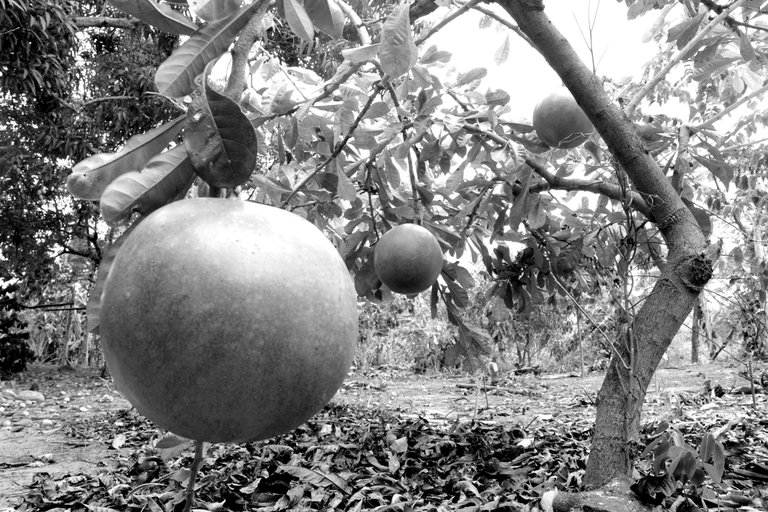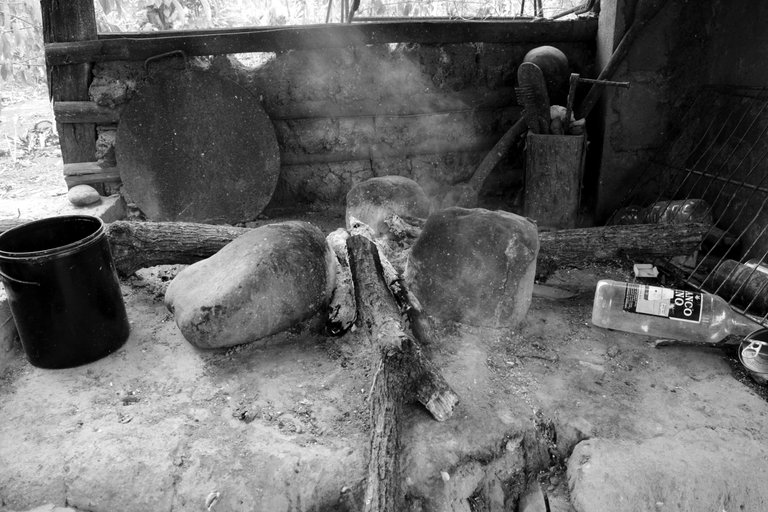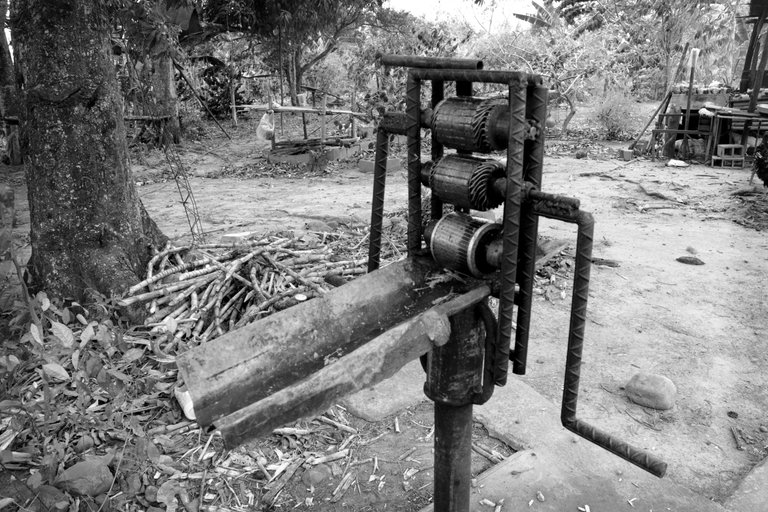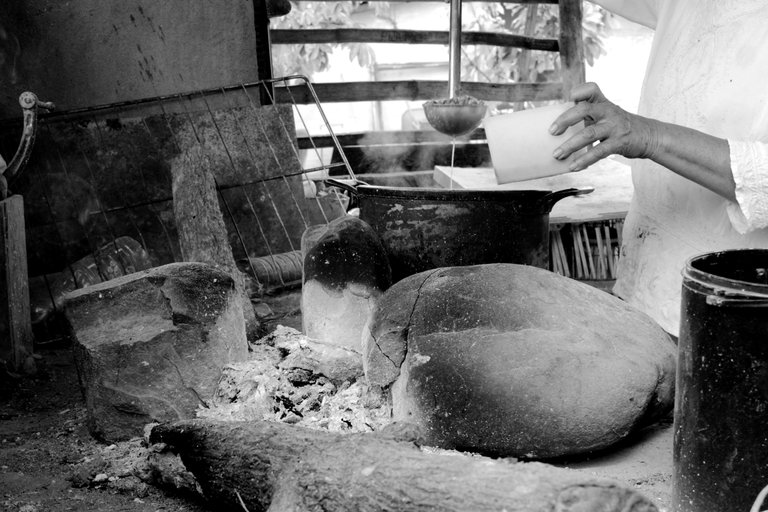#MONOMAD CHALLENGE : Back to basics [ENG-ESP]
MONOMAD CHALLENGE : Back to basics [ENG-ESP]
¿Cómo era la vida con los primeros seres humanos? Tenían las mismas necesidades que nosotros: comer, dormir, descubrir, acompañarse... ¿Cómo las satisfacían? Obviamente, de formas muy diferentes a las que hoy en día millones de personas lo hacen. ¡Y sobrevivieron! Entonces, ¿esos mismos métodos siguen funcionando hoy?
What was life like with the first human beings? They had the same needs as we do: eating, sleeping, discovering, companionship.... How did they satisfy them? Obviously, in very different ways than millions of people do today. And they survived! So, do these same methods still work today?

Tomemos sólo un ejemplo: cocinar. Millones de personas usan a diario las cocinas domésticas. Pueden ser eléctricas o a gas, por instalaciones directas gracias a servicios locales o conectadas a bombonas individuales. Hoy en día existen muchas muy sofisticadas, con pantallas para marcar temperatura, temporizadores, etc. Pero sin llegar a ser de última generación, hasta las más básicas pueden llegar a darse por sentado. Pero, ¿podríamos vivir sin ellas?
Tendremos buenos argumentos al pensar lo que ocurre incluso hoy en muchas partes del mundo, donde se sigue recurriendo a un trio de piedas, unos cuantos palos secos y fuego. ¿Quieres una versión 2.0? Bueno, algunos hacen una especie de cajuela para sustituir las piedras y tendrás un lugar para concentrar mejor el fuego y el calor. Pero en esencia, es lo mismo. El hecho de utilizarlo a diario hará de que uno pula la destreza de conocer las diferentes maderas que pueden utilizarse para obtener el resultado deseado: fuego o brasas. ¿Vivirás? Sí, podrás cocinar, podrás comer, se cumplirá el objetivo.
Let's take just one example: cooking. Millions of people use domestic stoves every day. They can be electric or gas, by direct installations thanks to local services or connected to individual cylinders. Today there are many very sophisticated ones, with temperature displays, timers, etc. But without being state-of-the-art, even the most basic ones can be taken for granted. But could we live without them?
We will have good arguments when we think what happens even today in many parts of the world, where they still resort to a trio of stones, a few dry sticks and fire. Do you want a 2.0 version? Well, some people make a sort of trunk to replace the stones and you'll have a place to better concentrate the fire and heat. But in essence, it's the same thing. The fact of using it daily will make you polish the skill of knowing the different woods that can be used to obtain the desired result: fire or embers. Will you live? Yes, you will be able to cook, you will be able to eat, the goal will be achieved.

Algo parecido puede decirse de otras herramientas, como el famoso trapiche. Lo usamos para apretar las cañas de azúcar y extraer el preciado jugo o guarapo. Nadie dijo que fuera sencillo, de hecho, se trabaja mejor cuando son varias personas. Por favor, quienes adaptaron por primera vez un motor de lavadora con una correa que haga girar los engranajes del trapiche deberían estar trabajando ahora en la NASA. Facilitaron mucho las cosas. Pero el punto es que pasaron muchas lunas haciéndolo sin este recurso. Y aún los que no pueden contar con tal inversión, siguen haciendo éste trabajo de forma manual. Así que cada vaso de jugo o guarapo que extraen tiene aún más valor. ¿Es estrictamente necesario un motor o un aparato similar para obtener ésta bebida? No. Básicamente, lo obtendrás igual de la forma más rudimentaria y manual.
El pilón, el molino manual, y otros herramientas siguen usandose. Aunque muchos de los niños de los países industrializados crean de que éstas cosas se extinguieron con los cavernícolas, son totalmente útiles en el presente.
Something similar can be said of other tools, such as the famous trapiche. We use it to squeeze the sugar canes and extract the precious juice or guarapo. Nobody said it was easy, in fact, it works better when there are several people. Please, those who adapted for the first time a washing machine motor with a belt that turns the gears of the trapiche should be working now at NASA. They made things so much easier. But the point is that they spent many moons doing it without this resource. And even those who cannot count on such an investment, continue to do this work manually. So every glass of juice or guarapo they extract has even more value. Is a motor or similar apparatus strictly necessary to obtain this beverage? No. Basically, you will get it the same in the most rudimentary and manual way.
The pestle, the hand mill, and other tools are still in use. Although many of the children of the industrialized countries believe that these things went extinct with the cavemen, they are totally useful in the present.

Este es el punto que quiero destacar: necesitamos sólo lo básico para vivir. Utilizar éstas herramientas me hace pensar de qué tanto necesito los electrodomésticos que tengo en casa. Ver de primera mano cómo muchos seres humanos igual que yo usan a diario de forma corriente este tipo de elementos (y algunos llegan a tener mejor aspecto y salud de lo que muchos se imaginarían) me hace pensar en lo que considero elemental o básico. Probar y consumir los alimentos en su estado natural, sin procesos industrializados ni conservantes afina tus sentidos, y te lleva a lo que experimentaron esos primeros seres humanos hace años atrás cuando los probaron por primera vez.
Por supuesto, la ciencia y tecnología nos ha ayudado mucho. Nos ha facilitado la vida y nos hace ahorrar tiempo en nuestras apretadas agendas. Valoro y agradezco esto enormemente. Pero, si esas circunstancias cambiaran, ¿cómo me las arreglaría sin ellos? Tengo que volver a leer el mismo libro que empezó a escribirse siglos atrás: historia del ser humano, capítulo 1.
This is the point I want to make: we need only the basics to live. Using these tools makes me think about how much I need the appliances I have at home. Seeing firsthand how many human beings just like me use such items on a daily basis (and some even look better and healthier than many would imagine) makes me think about what I consider elementary or basic. Tasting and consuming food in its natural state, without industrialized processes or preservatives sharpens your senses, and takes you back to what those early humans experienced years ago when they first tasted it.
Of course, science and technology have helped us a lot. It has made our lives easier and saves us time in our busy schedules. I value and appreciate this enormously. But, if those circumstances were to change, how would I manage without them? I need to re-read the same book that was first written centuries ago: History of Human Beings, Chapter 1.

😎

Imagenes: Realizadas por mi en GIMP con imágenes propias captadas con mi cámara Canon EOS Rebel t3i // Images: Made by me in GIMP with my own images captured with my Canon EOS Rebel t3i camera.
Banner: Realizados por mi en GIMP con imágenes propias y recursos gratuitos de la página pfpmaker.com/ // Banner: Made by me in GIMP with my own images and free resources from the site pfpmaker.com/
Idioma: Post redactado en español y luego traducido al inglés mediante DeepL/ // Language: Post written in Spanish and then translated into English through DeepL
nice pictures that friends display.
Thank you so much @mnurhiver
good friend are equally. I wish you the best.